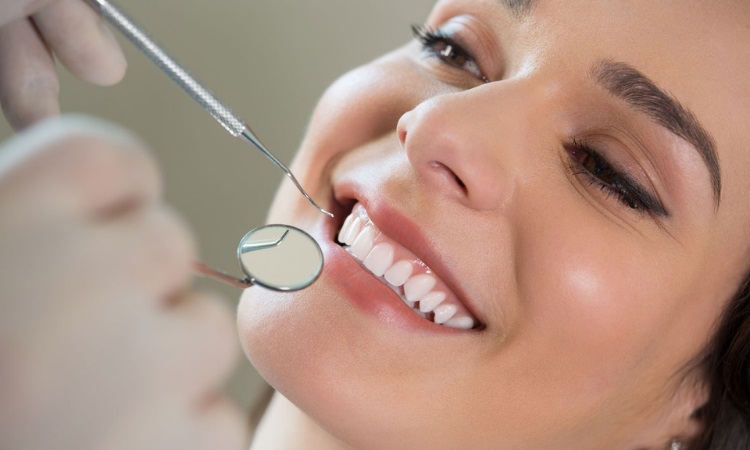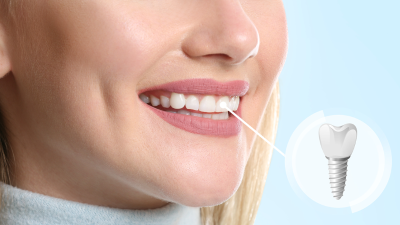In modern life, oral health is often neglected by many people. You're probably used to brushing your teeth every morning and night, but you know what? Some seemingly insignificant habits can actually seriously affect oral health and even be warning signs of overall health. Today, we are going to introduce you to 10 oral health tips that may be overlooked, so that you can do better in your daily life and maintain a healthy and beautiful smile.
The correct time to brush your teeth: half an hour after a meal
Do you always rush to brush your teeth right after eating? This is not actually scientific. Although brushing your teeth is the best way to keep your mouth clean, brushing your teeth right after a meal, especially if you eat acidic foods (such as citrus fruits, tomatoes, etc.), may lead to enamel damage. Why is that? This is because acidic foods temporarily soften tooth enamel, and the friction during brushing exacerbates the wear of tooth enamel. Therefore, it is best to wait at least 30 minutes after a meal, and then brush your teeth after the saliva naturally neutralizes the acidity of the mouth.

Don't neglect tongue cleaning
We all know that teeth need brushing, but have you ever cleaned your tongue? There are many bacteria and food debris on the tongue, which can be the culprit of bad breath. Tongue cleaning is also important. Use a tongue brush or toothbrush to gently brush the surface of the tongue, especially the base of the tongue. Keeping your tongue clean helps reduce bad breath and promotes overall oral health.
Replace your toothbrush often, especially if the bristles wear out
Most people have a bad habit of using the same toothbrush for too long. Toothbrush bristles will wear out after a period of use, resulting in a greatly reduced cleaning effect. Even if you think your toothbrush looks new, you should replace it every 3 months. If the bristles are bent or badly worn, it is even more important to replace the toothbrush immediately.
Regular oral examination, early detection of problems early treatment
Many people wait until their teeth hurt before going to the dentist, but this is actually a very dangerous practice. Regular dental check-ups can help doctors identify potential problems, such as periodontal disease and dental caries, in advance. It is recommended to have an oral exam at least once a year. For adults over the age of 50, gum health checks and oral cancer screening become especially important.
Avoid frequent consumption of sugary drinks and snacks
You probably know that eating sweets and sugary drinks is a major culprit in tooth decay, but did you know? It's not as simple as eating candy all at once. Frequent consumption of foods or drinks high in sugar, especially if you do not brush your teeth after eating, bacteria will convert sugar into acidic substances, corrosion the surface of the teeth, and then lead to dental caries. Try to reduce your intake of sugary drinks and keep your mouth clean.
Don't ignore signs that your gums are bleeding
Many people think that bleeding gums are normal, especially if they notice minor bleeding while brushing their teeth. However, bleeding gums are often a warning sign of gingivitis. If not paid attention to, it may lead to more serious periodontal disease. Especially if the bleeding lasts for a long time, you should go to the dentist for examination and treatment as soon as possible.
Drink plenty of water to keep your mouth moist
Keeping your mouth moist is the key to preventing dry mouth and oral diseases. Dry mouth can lead to reduced saliva, which in turn increases the growth of oral bacteria and the occurrence of bad breath. In addition, saliva can also neutralize the acid in the mouth and prevent the formation of cavities. Therefore, remember to drink more water and avoid being in a dry mouth environment for a long time, especially in a flight or air-conditioned room.
Eat a balanced diet to keep your teeth and gums nourished
We are often concerned about whether diet can help us lose weight or stay healthy, but we overlook the impact of food on oral health. Nutrients such as vitamin C, calcium, and phosphorus are essential for healthy teeth and gums. Citrus fruits, nuts, dairy products, etc., all provide beneficial nutrients. In addition, the fiber in food helps clean teeth and stimulates saliva production, reducing the accumulation of food debris.
Stop smoking to protect your oral health
Smoking not only harms the health of the lungs, but also seriously affects the health of the mouth. Smoking is one of the main causes of oral cancer, periodontal disease and bad breath. Harmful substances in tobacco not only erode the surface of your teeth and cause them to turn yellow, they can also affect your mouth's immune system, making your gums more susceptible to infection. If you want healthier teeth, the best thing to do is to quit smoking.
Keep good biting habits and avoid overexertion
Many people have a habit of grinding their teeth at night, or unintentionally clenching their teeth too much. Long term this will not only cause tooth wear, but may also lead to loose teeth or receding gums. In order to avoid this situation, it is recommended to wear braces when sleeping at night to prevent teeth grinding, and pay attention to maintain a relaxed biting state during the day to avoid unconscious overexertion.
Oral health is an important part of overall health, and maintaining good oral hygiene can not only help you have a bright smile, but also effectively prevent many potential health problems. From your diet to your lifestyle, from brushing your teeth to regular checkups, every little detail of oral care matters for your long-term health. With these neglected oral health tips, you can easily develop good oral hygiene habits, maintain a healthy and beautiful smile, and stay away from the troubles of your teeth and gums. Let's start from today, give more attention to the mouth, for their own health bonus!


